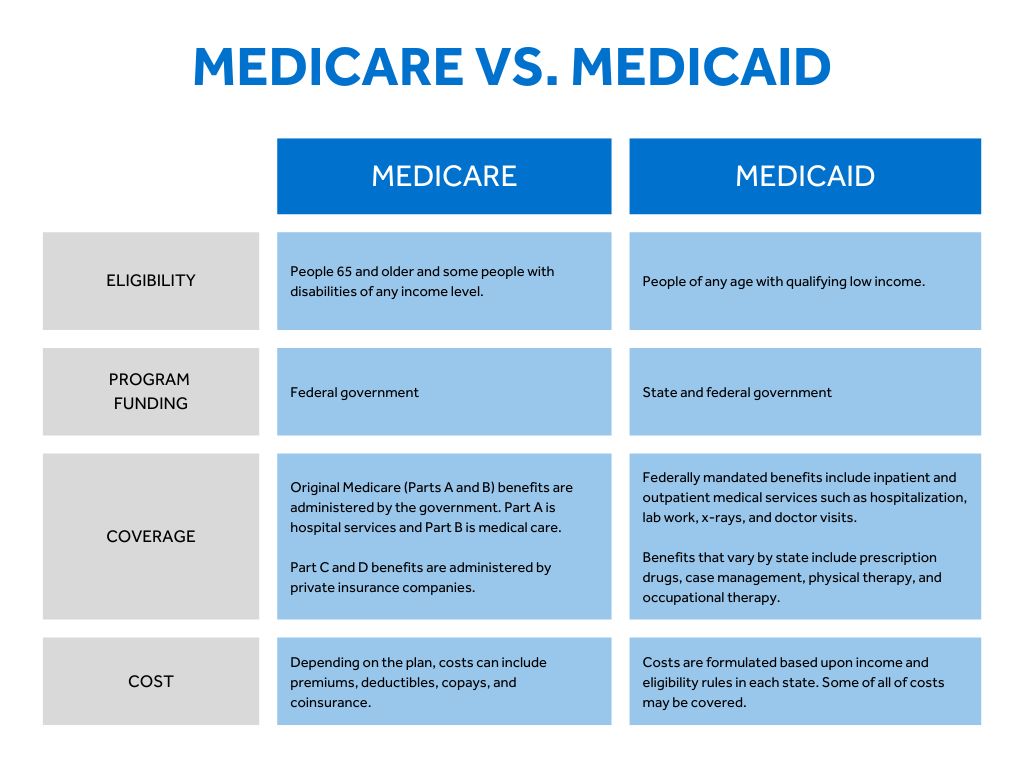
Medicare and Medicaid are essential health insurance programs that help cover healthcare costs for certain American residents. Established in 1965, these two programs have similar-sounding names, which often triggers confusion about how they work and the coverage they provide. While both are government-run health insurance programs, they help two different populations:
- Medicare provides health coverage to those older than 65 and some younger individuals with certain disabilities at any income level
- Medicaid provides health coverage for people with low incomes
Medicare Overview
Medicare is a federal health insurance program primarily designed for people aged 65 years and older. It also covers younger individuals with specific disabilities or conditions and people of any age with End-Stage Renal Disease or ALS. Medicare consists of four parts:
- Part A: Hospital insurance covering inpatient care, hospital stays, and some home health services.
- Part B: Medical insurance for outpatient services like doctor visits, preventive care, and medical supplies.
- Part C (Medicare Advantage): A bundled plan that includes Part A, Part B, and often Part D, provided by private insurance companies.
- Part D: Prescription drug coverage available to anyone with Medicare.
Medicare is funded through payroll taxes and premiums paid by beneficiaries. Most people do not pay for Part A, but there are premiums, deductibles, and copays associated with Parts B, C, and D. Because it’s a federal program, Medicare has set standards for costs and coverage. This means a person’s coverage will be the same no matter where they live.
Medicaid Overview
Medicaid is a joint federal and state program that provides health coverage for individuals and families with low incomes. Medicaid covers a broad range of healthcare services, including hospital stays, doctor visits, long-term care, and home health services. In many cases, Medicaid offers benefits that Medicare does not.
Unlike Medicare, which is funded entirely by the federal government, Medicaid is a partnership between the federal and state governments. This means that coverage, eligibility criteria, and benefits can vary from state to state, but the federal government has general rules that all states must follow. Many states have expanded Medicaid, including North Carolina, meaning more people are eligible for coverage.
Dual Eligibility
Some people qualify for both Medicare and Medicaid, often called dual-eligible patients. These individuals typically have low incomes and complex healthcare needs. Dual eligibility can help cover costs that Medicare does not, including long-term care services, copayments, and premiums. When a patient is dually eligible, Medicare pays first, and Medicaid pays last.


